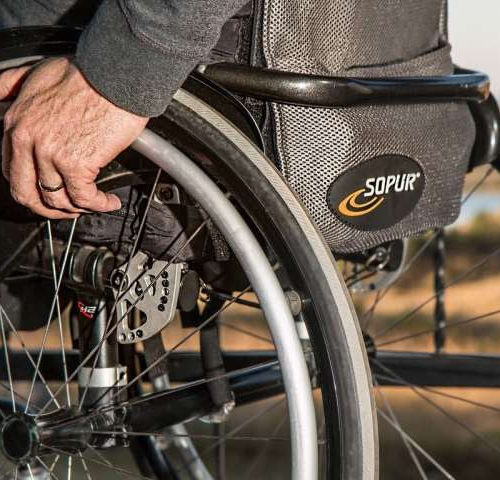After a sharp drop in out-of-pocket costs between 2010 and 2011, Medicare patients who use specialty biologic medications for rheumatoid arthritis have seen higher out-of-pocket spending for those same drugs because of gradual price increases, a new study in the Journal of the American Medical Association Open finds. Led by Vanderbilt University School of Medicine...
Tag: <span>researchers</span>
Intensive blood pressure control has potential to reduce risk of atrial fibrillation
by Wake Forest University Baptist Medical Center Intensive blood pressure control may reduce the risk of atrial fibrillation (AFib), an irregular heartbeat that can lead to serious complications such as stroke, heart failure and heart attacks, according to scientists at Wake Forest School of Medicine. In a study published in the May 4 edition of...
Risks of potentially inappropriate medications post-hospitalization for older adults
by American Geriatrics Society “Potentially inappropriate medications (PIMs)” are treatments that sometimes pose risks that outweigh their benefits, particularly for people who are 65 or older. About 20 to 60 percent of older adults take medicines that may be potentially inappropriate. That can increase the risk for being hospitalized, needing to visit the emergency department,...
Nasal biomarkers predict severity of pollen-specific allergy symptoms
by Helmholtz Association of German Research Centres For people with allergies, contact with pollen leads to symptoms such as sneezing, rhinitis and watery eyes. This may sound trivial, but is in fact a complex correlation of physiological processes. As these have not yet been fully understood, we do not know exactly yet how allergies develop...
1 in 7 Americans would avoid care for suspected COVID-19 fearing cost of treatment
WASHINGTON, D.C. and SAN DIEGO, CA – About 1 in 7 Americans say they would avoid seeking medical care if they experienced key symptoms associated with COVID-19 out of fear of the potential cost. Another six percent – representing about 15 million people – report that they or a family member have been denied medical...
CBD shows promise for fighting aggressive brain cancer
Bethesda, MD – Findings from a new study examining human and canine brain cancer cells suggest that cannabidiol could be a useful therapy for a difficult-to-treat brain cancer. Cannabidiol, or CBD, is a non-psychoactive chemical compound derived from marijuana. The study looked at glioblastoma, an often-deadly form of brain cancer that grows and spreads very...
Reducing early brain inflammation could slow Alzheimer’s progression
CREDIT: GIORGIA MENEGONI, SAPIENZA, UNIVERSITY OF ROME Bethesda, MD – In a new animal study examining Alzheimer’s disease, researchers found that disease progression could be slowed by decreasing neuroinflammation in the brain before memory problems and cognitive impairment were apparent. The new findings point to the importance of developing therapies that target very early stages...
LSD “off-switch” developed by psychedelic pharmaceutical company
By Rich Haridy Psychedelic pharmaceutical company MindMed has announced the development of a novel compound designed to stop the effects of an LSD experience. The compound is claimed to function as an “off-switch” for LSD, allowing clinicians a way to make psychedelic therapy sessions safer if patients become uncomfortable. The new announcement comes several weeks...
Researchers identify key mechanisms involved in pulmonary fibrosis development
by Charité – Universitätsmedizin Berlin CT images and tissue sections show how healthy, air-filled tissue is replaced by thickened, stiff connective tissue. Credit: Leitz/Charité Working alongside research groups from Heidelberg, researchers from Charité – Universitätsmedizin Berlin have elucidated the novel disease processes involved in the development of pulmonary fibrosis. They were able to show that...
Scientists uncover a gene that doubles the risk of developing several neurodegenerative diseases
by HudsonAlpha Institute for Biotechnology Richard M. Myers, PhD, and Nicholas Cochran, PhD, in the Myers Lab at HudsonAlpha Institute for Biotechnology. Credit: HudsonAlpha Institute for Biotechnology Scientists at the HudsonAlpha Institute for Biotechnology, the University of California, San Francisco (UCSF), and the University of Alabama at Birmingham (UAB), have identified a new risk factor...





